Gearing up for a pandemic election: it’s all about security
The budget will target the three areas on which the next contest will be fought.
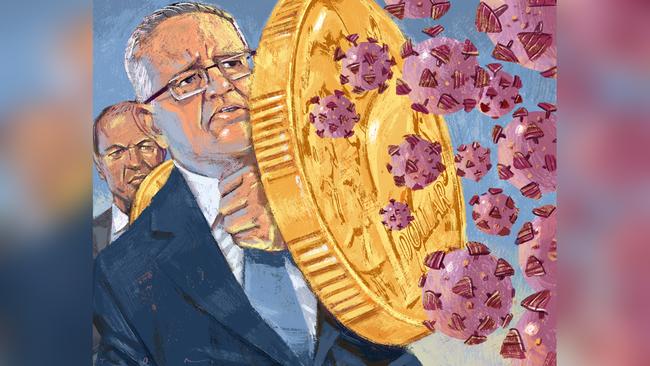
The next election, which has to be called within 10 months, will be fought on health security — handling the threat of a third, more virulent, wave of COVID-19.
It’s also going to be about economic security — creating even more jobs and boosting confidence and investment.
And, finally, it will be a “khaki election” about national security — managing the regional tensions of Chinese expansion and living up to our security responsibilities.
This is the political reality in a world where all the rules have changed, expectations are different and anxiety about contracting COVID-19 or losing a livelihood is the driving force in generational life decisions, concerning everyone from the newly born to the nearly dead.
Politicians are detecting the changed attitudes to how people live and work, their new priorities and a new peak in intergenerational concern and interdependence in which baby boomers fear for their aged parents and the elderly are concerned about their children and grandchildren.
There have been other issues that have crossed the generational divide, such as conscription, climate change, health insurance and workplace relations laws, where older people care more about what is going to happen to the young who are just leaving school or university than they are about an immediate impact on themselves.
Budgets in the past, such as Peter Costello’s initial tough agendas, were supported overwhelmingly by people who admitted they were individually worse off but who believed the spending cuts and taxes were in the national interest.
John Howard’s task to win a fifth term was made practically impossible as grandmothers and grandfathers at the end of their working life, or out of it entirely, feared young workers would be vulnerable to exploitation under proposed workplace laws.
Julia Gillard’s election plan in 2010 to give old people precedence over the young for hospital treatment was a lemon.
The challenge for Scott Morrison and the Coalition, seeking a fourth term with a third prime minister, is to convince people the government has done its best to protect the health of Australians during the pandemic, that business growth and job creation are sustainable despite global threats, and that defence means preparedness for a robust regional peace and not a race to war.
The challenge for Anthony Albanese and the opposition is to convince people that Labor would have handled the pandemic as well as the Coalition has, that Labor’s economic agenda will not undermine a recovery that still has many obstacles and unknowns, and that Australia will not be left defenceless and isolated in the region as a result of aggressive Chinese investment hegemony and military muscle. At this stage of the pandemic, economic and electoral cycle it is clear the Prime Minister, Josh Frydenberg, Health Minister Greg Hunt and Defence Minister Peter Dutton are in front on prosecuting their case for re-election in a close contest.
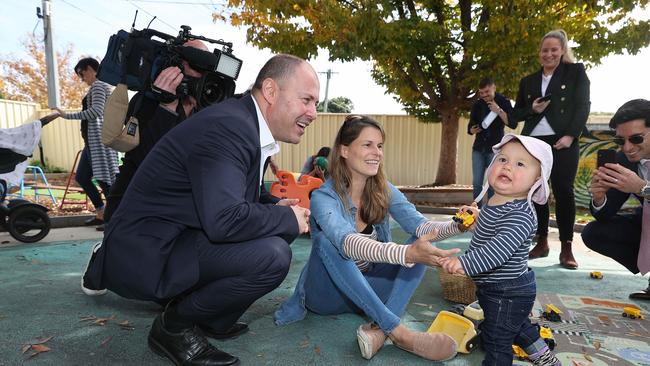
Since the rescheduled budget — which had the fundamental assumptions there would be a vaccine to roll out this year and a quick economic recovery — was handed down in October last year the government has been able to point to a world-leading and stronger than expected economic recovery, the virtual elimination of community COVID-19 transmission and a revamp of defence spending and attitude.
All the jobs lost through the pandemic have been regained; the end of JobKeeper has not created an unemployment cliff; the budget deficit will be far less than predicted; and interest rates at zero have limited the impact of the record national debt.
Albanese has the huge disadvantage of being Opposition Leader during a once-in-a-century pandemic, where the public is forgiving about government mistakes and disappointments as long as the incumbents are doing all in their power to combat the effects of coronavirus.
Since the pandemic began and Australia’s international and state borders started to close, incumbent state and territory governments, even some facing expected defeat, have received resounding endorsement at elections. There’s no good time to be in opposition but now would have to be the worst. But Morrison is not simply taking advantage of incumbency and Albanese is not simply disadvantaged by opposition alone.
Morrison has demonstrated, from the beginning, a grasp of the enormity of the pandemic and a preparedness to change and pivot, to innovate and renew, and to cast aside shibboleths and ideology.
Australia closed its border to China early, and political fear of deficit was cast aside to fund the fight against COVID-19 — $267bn and egalitarian job support schemes were introduced to keep almost a million people in work as businesses were kept going.
“The Australian commonwealth government has, when you add up everything that all the states and territories have done to support COVID, both on health and on their economic supports, double it and then add a bit more, and that’s what the commonwealth government has done: $267bn,” Morrison said this week.
Despite the popular and economic success of the JobKeeper and HomeBuilder programs to keep people in work and maintain the building industry, Morrison was attacked by conservatives for creating JobKeeper and by Labor for ending it.
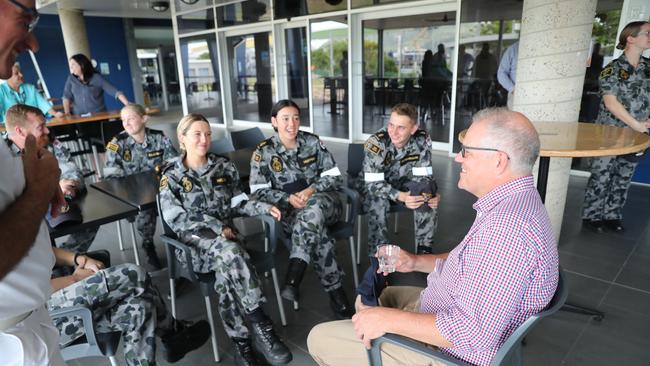
Labor’s predictions of unemployment “falling off a cliff” if JobKeeper was not extended has not yet materialised and the Treasurer has been able to balance the need to subsidise jobs with the calls for “austerity” by ending the payments, with estimates of the cost for 2020-21 in the budget to be $4.5bn lower than forecast in the Mid-Year Economic and Fiscal Outlook.
The “austerity” in the budget also includes not bringing forward scheduled 2024 income tax cuts for higher earners — flattening the top rate to 30 per cent for all workers earning between $45,000 and $200,000. Nor will there be significant changes to superannuation as Morrison keeps the spotlight on previous ALP policies.
But when it comes to child and aged care, the budget will reveal billions of dollars in government support to meet demands for the Coalition fundamentally to change aged care and provide assistance for women to go to work.
Frydenberg is trying to address the concerns of those who want traditional Coalition discipline restored and moves made to reduce the budget deficit and national debt, but he is following Morrison’s lead towards spending big on job welfare and industry support.
This political test of austerity versus profligacy is the key to Albanese’s own budget dilemma.
Labor’s pre-COVID-19 plan to hoist Frydenberg with his own petard of claiming a budget deficit and reducing debt is gone, swept away with record global debt and deficits and complicated by Labor’s own insistence that JobKeeper should not have been closed last month.
A call for less debt and deficit is inconsistent with arguing for a continuance of one of the pandemic’s biggest imposts.
Albanese is caught here not only by coronavirus but by the legacy of Labor’s last election run on a big-taxing, big-spending agenda, which he has not been able to fully pull back and to which he has also added big-ticket items for childcare and aged-care homes.
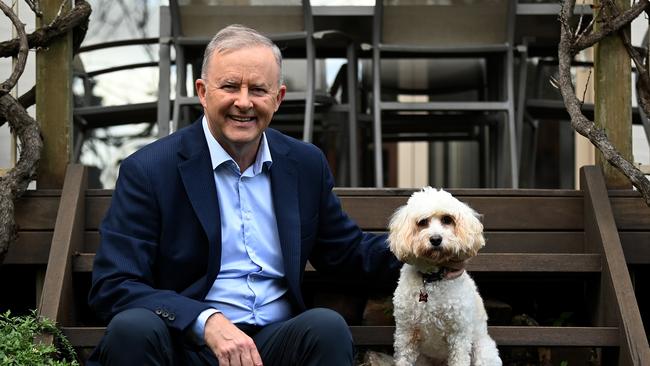
In a speech on Thursday, Albanese harked to Kevin Rudd’s appeal to conservatives voters and economic hardliners when he declared he would be a “fiscal conservative” and accused Howard as “profligate”.
“When it comes to thinking about government spending, I am cautious,” Albanese said.
But he couldn’t resist adding: “Labor will never leave behind those who need government support.”
Even as Albanese was speaking, Tony Burke, as Labor’s industrial relations spokesman, said JobKeeper should not have been ended and argued for its extension.
Like having to decide whether to campaign at the next election against more income tax cuts for people on $45,000 to $200,000 — not high-income earners and Labor workers — Albanese will have to decide whether to extend fiscal conservatism to so far uncosted climate-change and childcare aspirations.
Delays in the COVID-19 vaccine rollout have provided Albanese with some ammunition, along with quarantine breakdown and disputes, to attack Morrison on the healthcare front, but vaccine hesitancy tends to suggest there are not the angry millions banging on doctors’ doors that Labor suggests.
All of the public polling suggests the Coalition has overwhelming support for how it is handling the pandemic on both the health and economic fronts.
In response to criticism of vaccine delays and the ban on Australians returning from India, Morrison said: “Cautious decisions have proved very effective for us over the course of the last 18 months. I remember when we put the flight ban out of mainland China at the start of the pandemic. I was attacked for that at the time. I don’t think anyone thinks that was an unwise decision 14 months later.”
As for the third element of defence readiness, since World War II Labor has never had an edge over the Coalition on national security; and even given the mess surrounding the submarine contract and spending over several years that defied reason, there are solid signs the government’s approach to defence now has the will and the way to match the means.
This is a pre-election budget and it is being framed to play to essential Coalition strengths and perceived public concerns. Even an emergency economic statement or election-eve show budget next year will not change the foundations being laid on Tuesday.
What’s more, if there does have to be some emergency action, apart from the mid-financial year forecasts in December, then the anxiety and fear of change will only be enhanced and work for the incumbents.
Morrison is playing to the Coalition’s strengths: relying on recognition of a good job so far on dealing with the pandemic, keeping the egalitarian air of support for workers expressed in JobKeeper, forking out billions where he has no choice.
That leaves Albanese with unenviable decisions to avoid being inconsistent and negative.


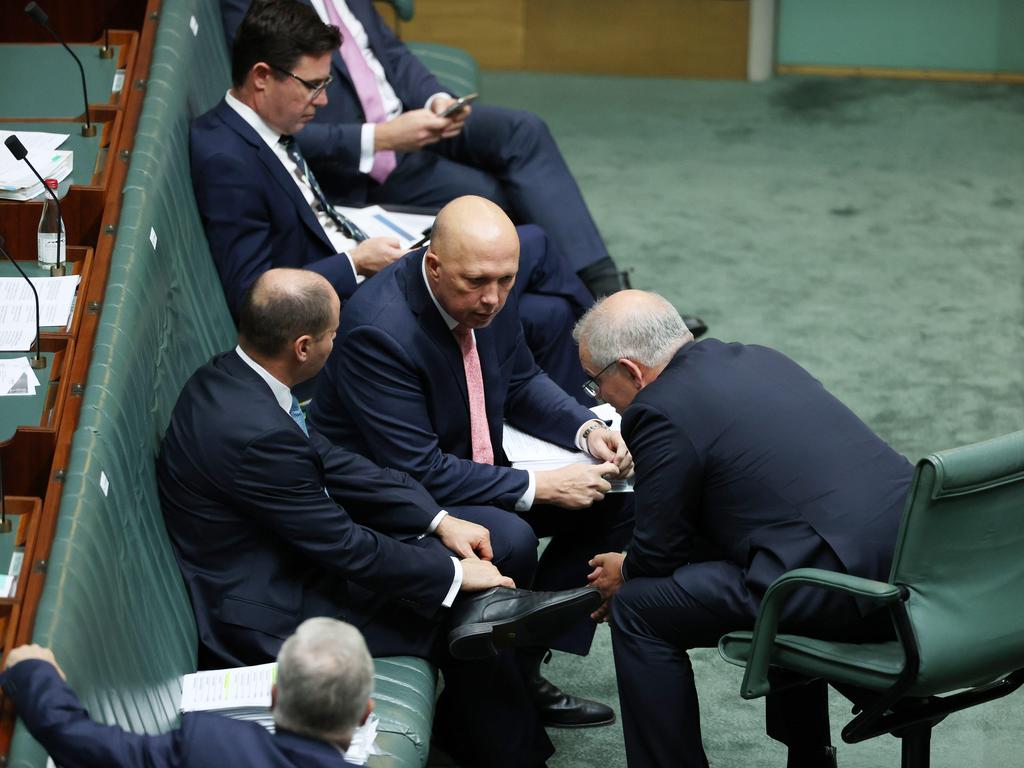
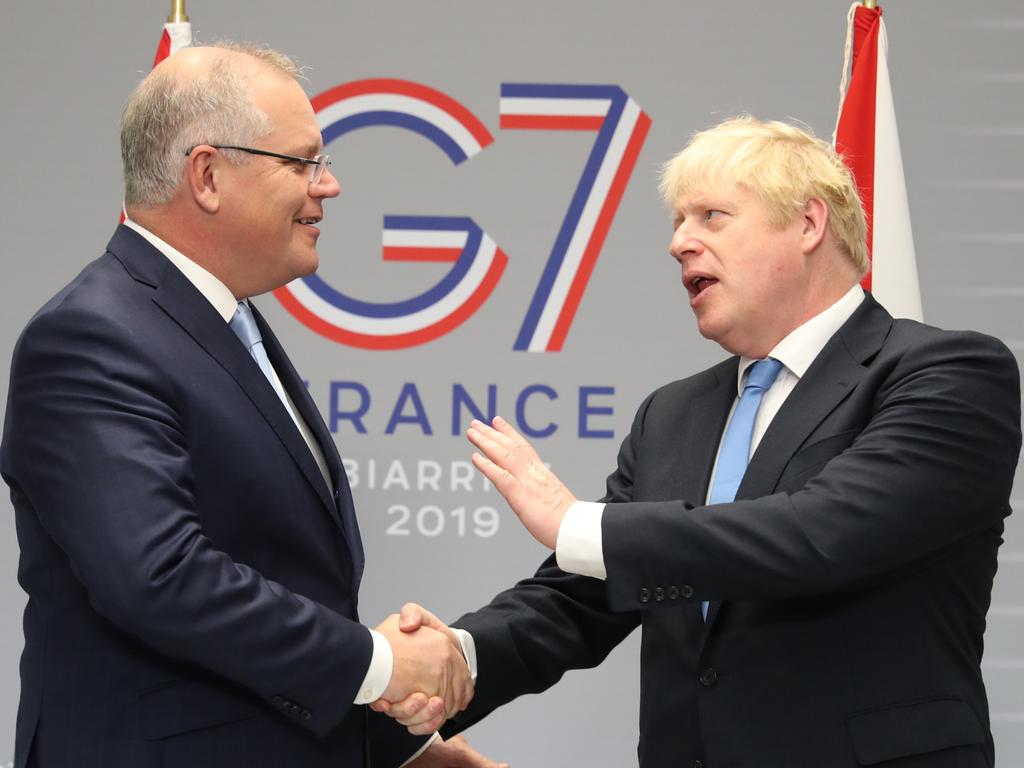
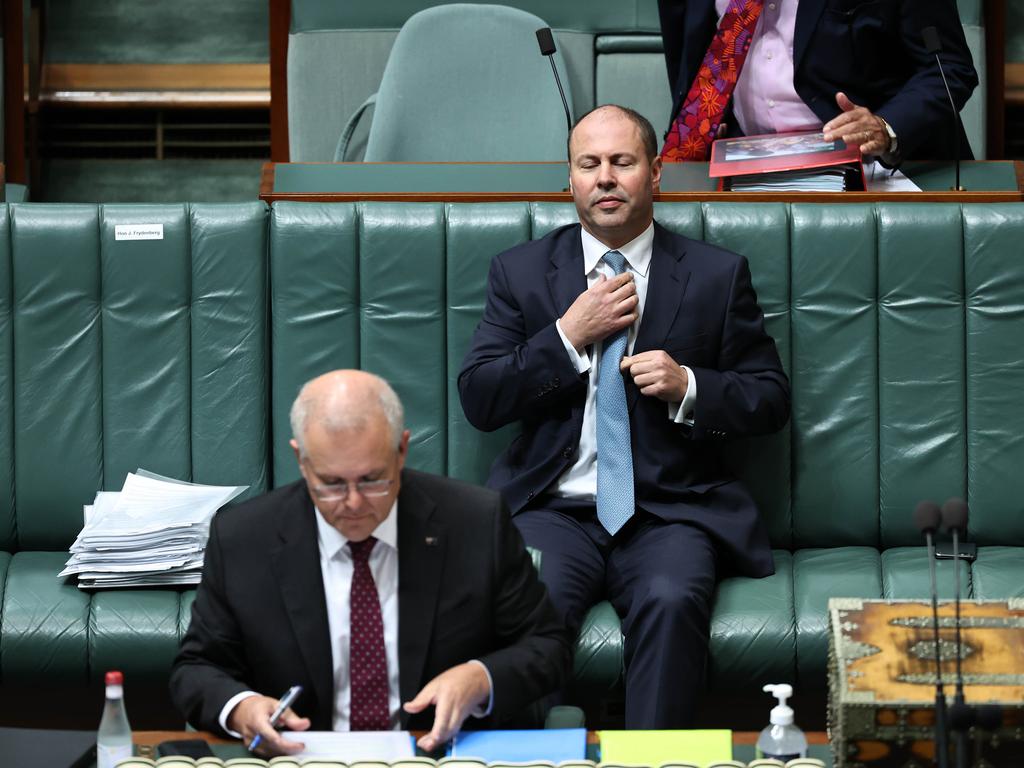
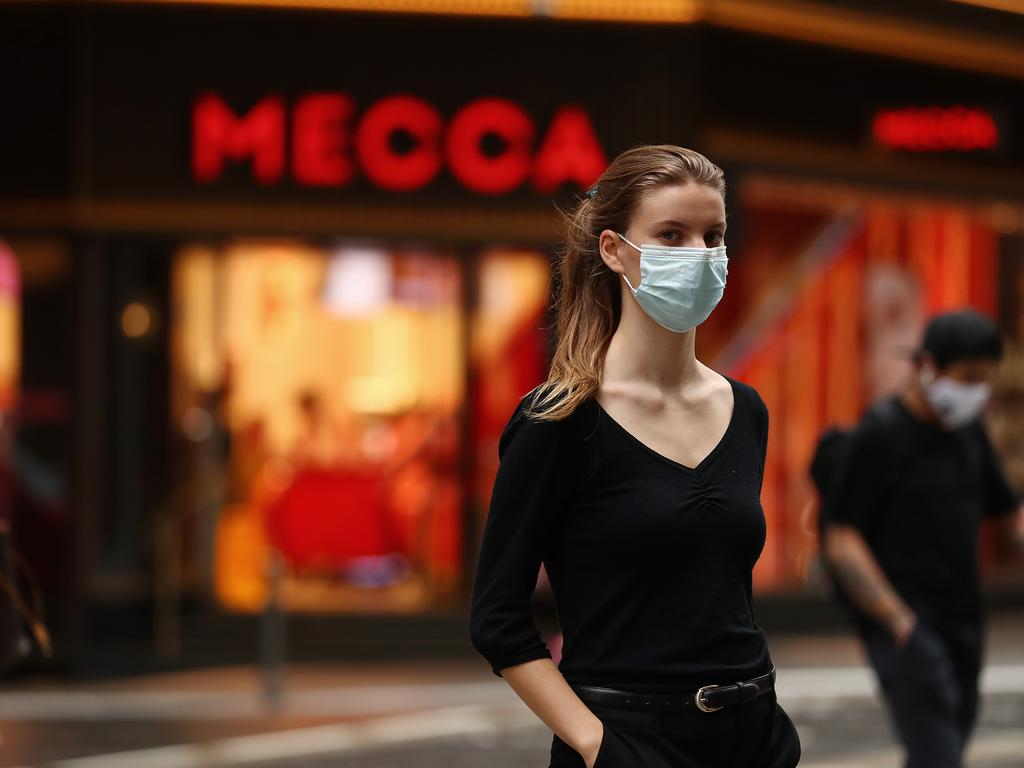
Tuesday’s budget is going to be about health security, economic security and national security.